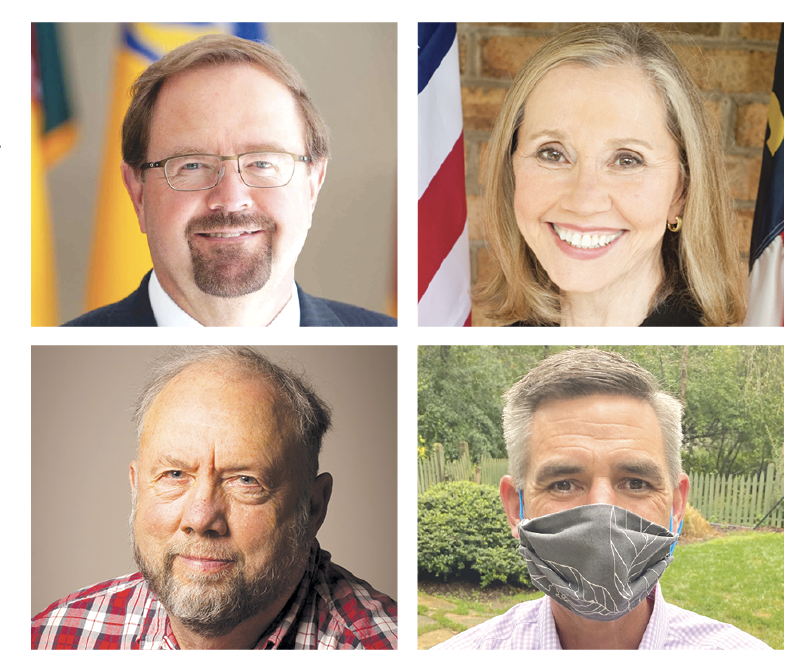“What a pleasure to be in a room with real people,” remarked Sen. Chuck Edwards at the start of the Asheville Area Chamber of Commerce’s annual legislative wrap-up meeting with state lawmakers on Nov. 17. Approximately 25 chamber members sat with boxed breakfasts around socially distanced tables at Asheville’s Crowne Plaza Resort as the District 48 Republican shared his thoughts about the prior year in Raleigh.
It was a pleasure, however, that Edwards was alone in enjoying among his Western North Carolina colleagues in the General Assembly. Democratic Reps. John Ager and Brian Turner, as well as outgoing Democratic Sen. Terry Van Duyn, all addressed the meeting virtually via Zoom.
Just as the event’s logistics were driven by COVID-19, so too were the challenges for the coming year that the four elected officials discussed. Chief among those issues, Edwards said, would be balancing the state’s next budget to reflect pandemic-driven downturns in revenue.
While the extent of the shortfall between current spending levels and those the state could support for fiscal year 2020-21 won’t be clear until May or June, Edwards continued, he offered a ballpark estimate of $5 billion to $8 billion. He didn’t detail which programs might be on the chopping block but said lawmakers would need “quite a bit of courage” to close the revenue gap.
Turner agreed that he and his colleagues would have a “tough row to hoe for next year’s budget.” In addition to decreased revenue, he pointed out, the GA will likely face higher demand for local business support, unemployment benefits and rental assistance as the impacts of the pandemic continue to ripple through the economy.
And Ager, who shared that he was under quarantine after his niece had contracted COVID-19, said his top issue was ensuring local institutions such as the Swannanoa Correctional Center for Women and Craggy Correctional Center were safe from the coronavirus. As of Nov. 30, no active coronavirus infections were reported at Swannanoa, while 54 active cases were reported at Craggy; none of the county’s state prisoners have died of the disease to date.
Beyond facing the immediate health and economic challenges of the virus, the WNC delegation expressed a shared commitment to expanding broadband internet access, which members said had proven critical during the pandemic. Both Edwards and Turner said they were open to developing a new commission, similar to the state’s Rural Electrification Authority, that would oversee and incentivize broadband efforts.
More divisive was a discussion of Edwards’ proposal to cut state funding from cities, including Asheville, that reduce their police budgets. In response to an Xpress question about why the state should penalize cities for maintaining public safety as they deem appropriate, Edwards countered that his measure would instead “incentivize municipalities for protecting their citizens.” He also said the move would “provide political cover” to local leaders under pressure from activist groups that have demanded police defunding.
Turner interjected that state lawmakers are elected to handle North Carolina’s affairs, not micromanage municipalities. “We should leave the city budget up to the City Council and the mayor,” he said. “If residents aren’t happy with the outcomes, they can vote them out.”




Before you comment
The comments section is here to provide a platform for civil dialogue on the issues we face together as a local community. Xpress is committed to offering this platform for all voices, but when the tone of the discussion gets nasty or strays off topic, we believe many people choose not to participate. Xpress editors are determined to moderate comments to ensure a constructive interchange is maintained. All comments judged not to be in keeping with the spirit of civil discourse will be removed and repeat violators will be banned. See here for our terms of service. Thank you for being part of this effort to promote respectful discussion.